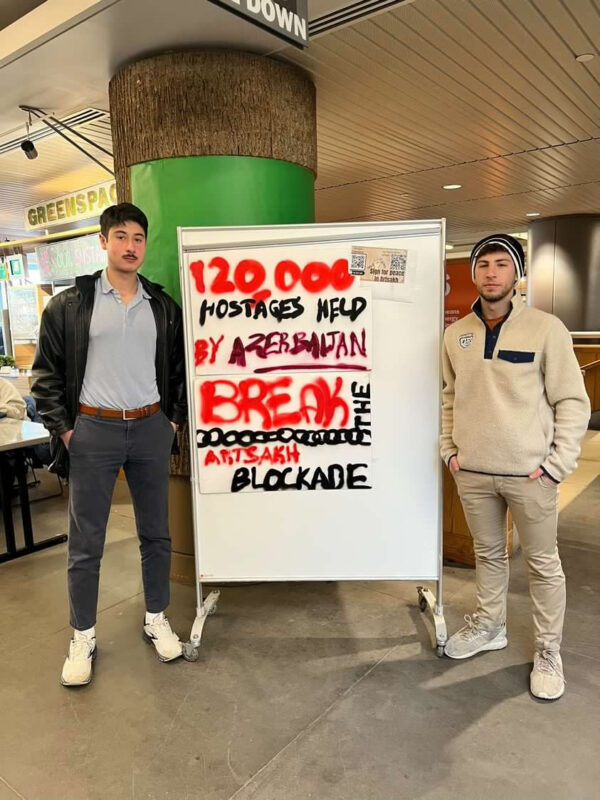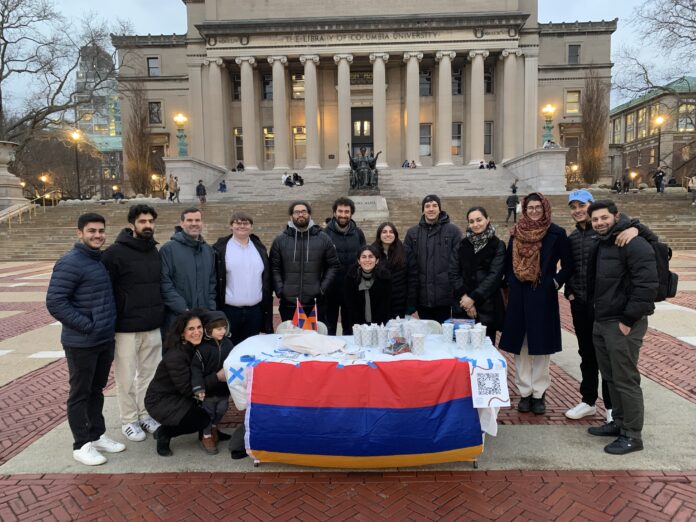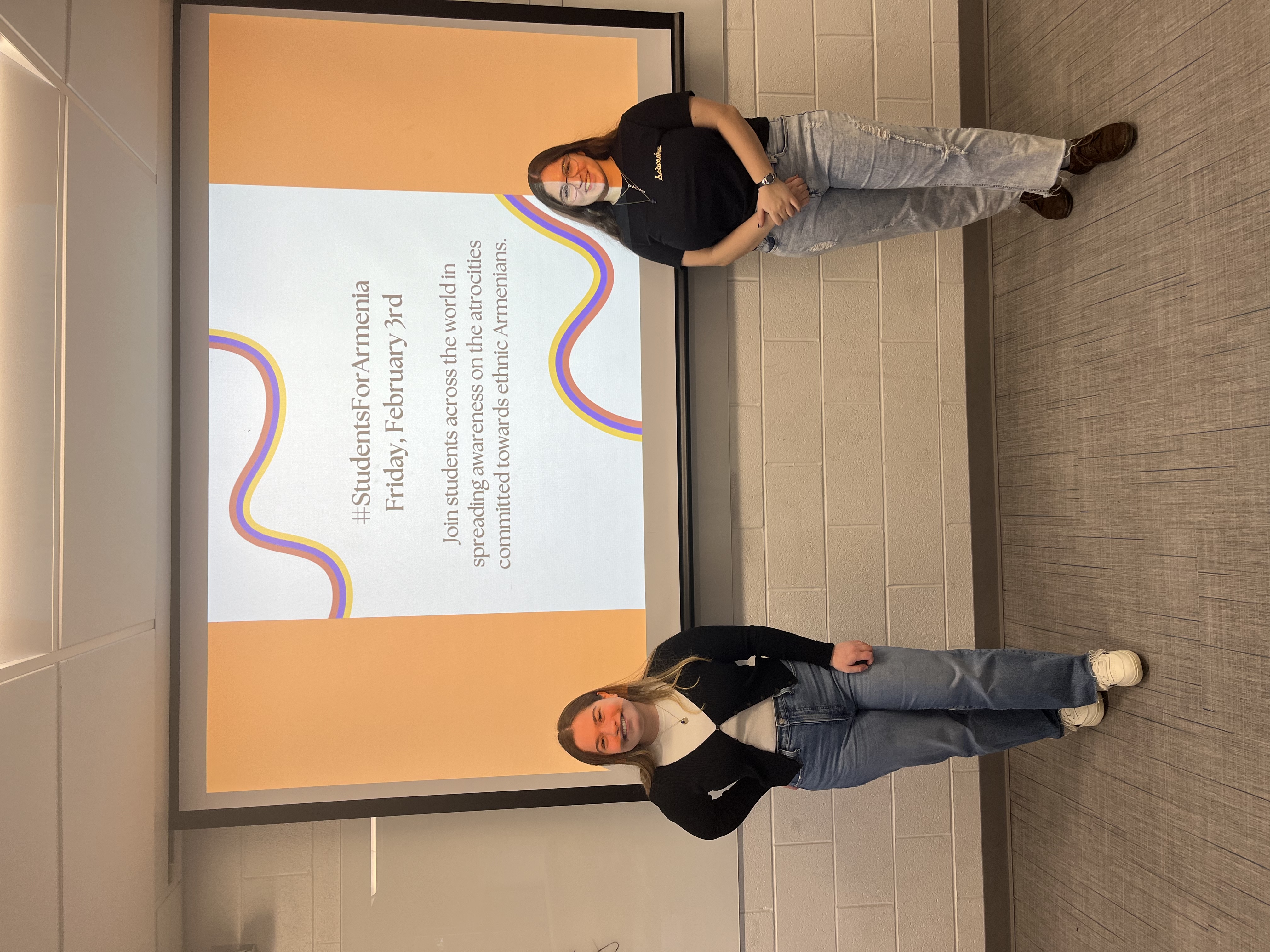By Annie McGovern
MIDDLETON, Conn. — On Friday, February 3, Monday, February 6, and Thursday, February 9, students across the world protested the ongoing human rights violations committed by Azerbaijan towards ethnic Armenians in Nagorno Karabakh. Student representatives from Columbia, Cornell, George Washington University, Harvard, Princeton, Villanova, University of Buenos Aires, Imperial College London, London School of Economics, King’s College and University College London participated in the events and publicly condemned the recent blockade of the Lachin Corridor.

Unfortunately, the decades-long conflict between Armenia and Azerbaijan over Nagorno Karabakh is rarely reported on by mainstream media or included in school curricula. Most Americans remain completely unaware of the current political situation.
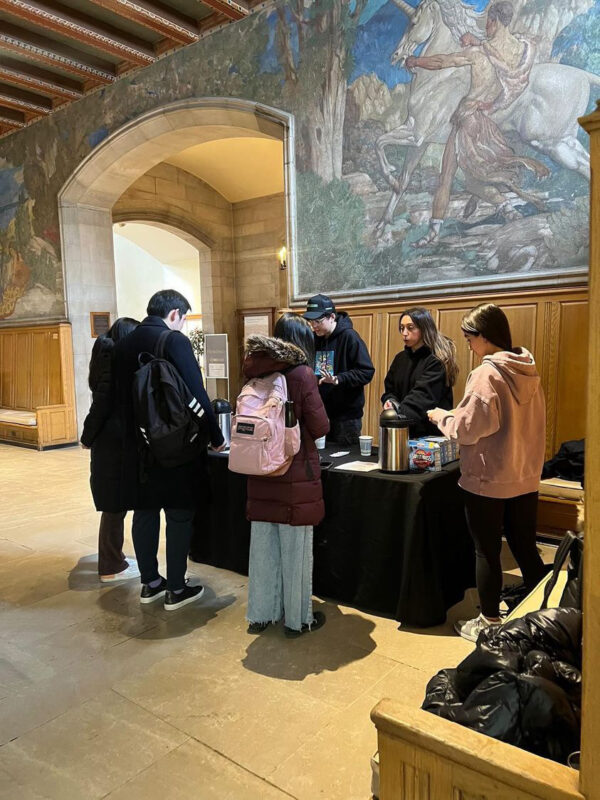
On December 12, 2022, Azerbaijanis posing as eco-activists imposed a blockade, accusing Armenians of transporting military hardware to Nagorno Karabakh and illegally mining for resources in the contested region. In reality, many of the participants are Aliyev supporters, military personnel, members of the Turkish nationalist group Grey Wolves, and more. Further, RFE/RL found that the Azerbaijani government provided the tents that the protestors sleep in.
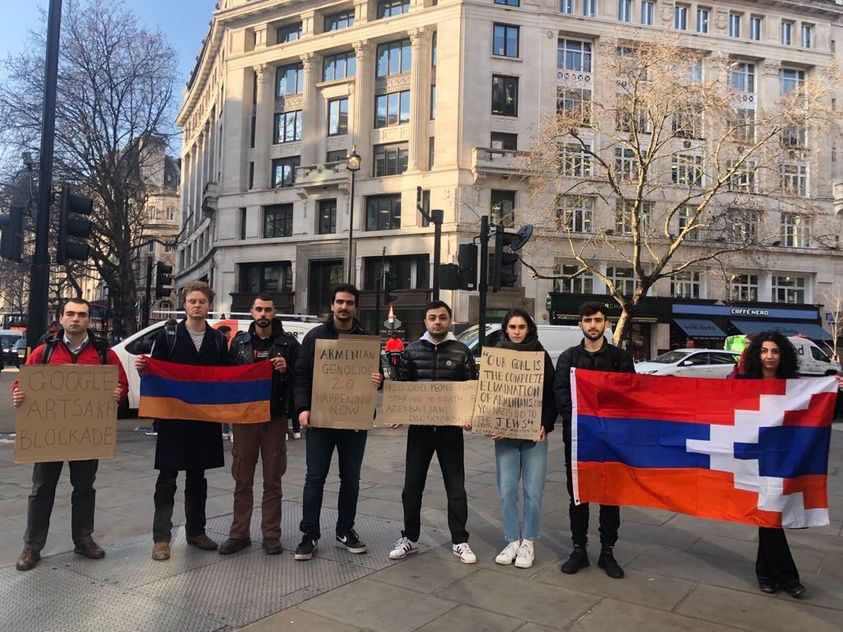
The Lachin Corridor is the main passageway linking Armenia to Nagorno Karabakh and is used to deliver hundreds of tons of food, medicine, fuel, and other essential goods to the residents of Nagorno Karabakh. The blockade has placed over 120,000 ethnic Armenians under siege for close to two months. Without their daily imports from Armenian proper, the residents of Nagorno Karabakh are suffering major food and medicine shortages. Businesses have closed, leaving thousands of Armenians unemployed, and markets remain empty. In addition, residents are experiencing sporadic disruptions to their power and energy lines, which lie in Azerbaijani territory. The government has started providing firewood and wood burning stoves so that residents can have a reliable source of heat and have shut down schools that lack energy supplies. These dire situations have exacerbated pre-existing health conditions, and without working hospitals and proper medical supplies, many patients’ health remains in danger. Patients in grave condition that require transfer to the larger hospital in Yerevan have been prevented from accessing life-saving treatment by the blockade. This has resulted in at least one death.
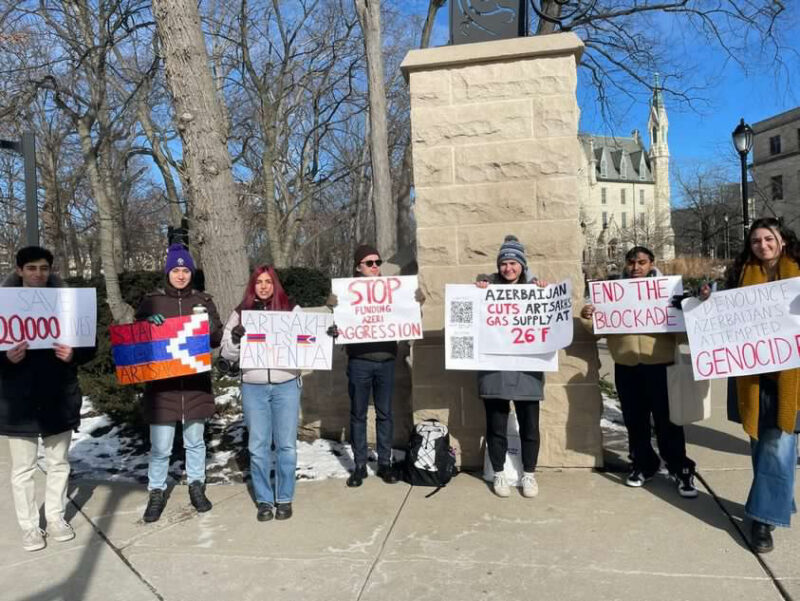
When the blockade was first instituted, Armenians were still recovering from the military operations that Azerbaijan launched on September 13. The two-day attacks resulted in 207 Armenian soldiers dead, 293 Armenian soldiers wounded, 20 new prisoners of war, 7600 civilians displaced, and 3 civilians dead.
